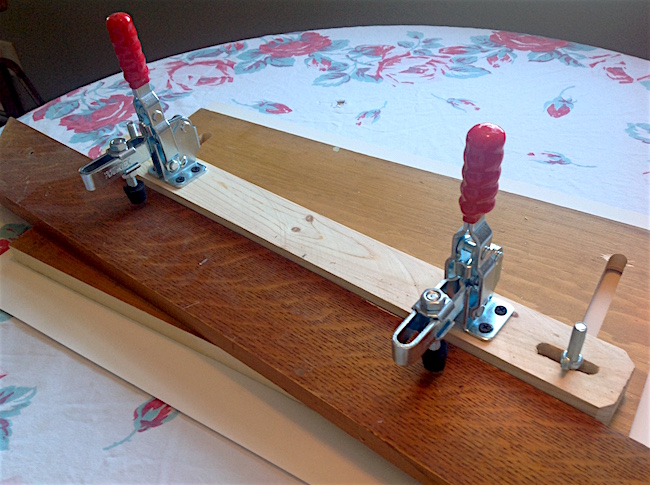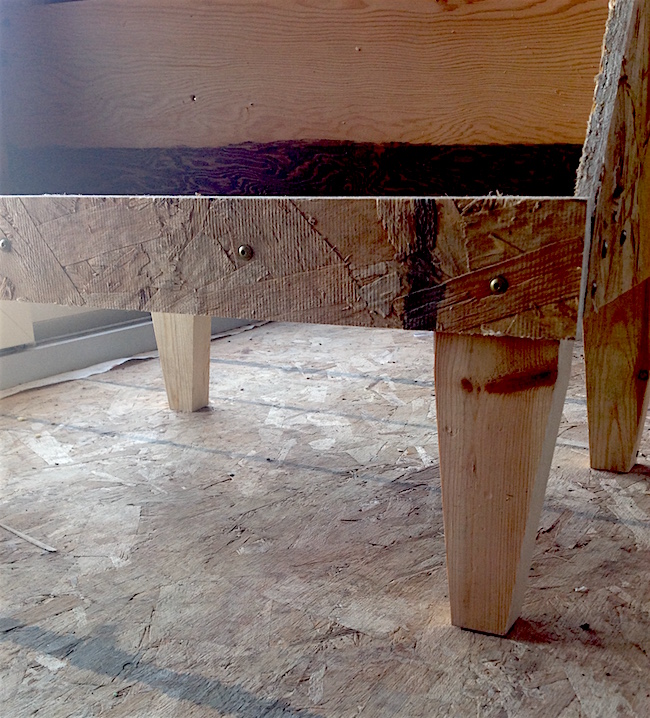The Slippery Slope
Circa 1975. I was starting high school (Yes, I’m that old!), and with a particular interest in all things science, I looked forward to delving further into physical science, chemistry, and biology. I was intrigued by the things I had already learned about the world and how science could help us understand the world. Little did I know that the facts I learned then . . . would change! To wit:
The electron “is the smallest particle in the universe.”
We are facing a new ice age.
We only have 50 years left of fossil fuel.
We will be unable to feed the world population by the year 2000.
Today, science tells us . . .
Quarks are smaller than electrons.
We need to be worried about global warming . . . no, . . . wait, . . . climate change.
We still are going to run out of fossil fuel . . . and besides it is destroying the Ozone.
Water is going to become a major crisis for the world.
I’m not here to dispute or challenge the scientific dogma, old or new, or the merits of each of these theories, I just note it to say, “the facts have changed!” Some would argue, correctly I believe, that this change is exactly what science is supposed to do! Change as new knowledge and better models are discovered. I agree. But others would see a more sinister pushing of agendas that might have other motives. Perhaps this too is true.
In either case, it illustrates that far too often theories are confounded with proven facts. My teachers, in 1975, made this error. Presumably they had been taught that scientific theories and data are only consistent with projections and are not, in and of themselves, facts . . . but that is not how it was presented. It was presented as a scientific certainty. It proved not to be true and it is still happening today.
Blame it on lazy thinking, poor educational systems, a lack of higher education . . . what ever you will, but again I am not hear to debate those theories but to talk about the slippery slope of facts as it relates to business.
Businesses, Organizations and Facts
One of the greatest challenges to helping businesses and organizations change is what “they already know.” Einstein encased the problem of “knowing” succinctly in his oft quoted adage, “We cannot solve our problems with the same level of thinking that created them.” When working with leaders one of the tell-tale signs of whether an “outside consultant” can help is if they are willing to have what is known challenged and if they are actively looking for new ways to approach the problems. If not, they are doomed to repeat the cycle that produced and sustain the problem.
Sounds easy enough, doesn’t it? The problem is, most leaders think they are open to questioning the facts as they know them—and I think they honestly believe they are. However, too often, years of conditioned responses makes them resistant to change.
The Power of Conditioning
To illustrate the power of the conditioning, I will at times, after meeting with them for some period of time, raise my hand and extend it toward the leader. Instinctively, they will raise their hand to meet mine. Then I ask them why they did that . . . “well, you wanted to shake hands,” they reply. “Did I? Did you?” I set this up after we have talked a while specifically because a handshake is not expected at that time. We didn’t just meet and it’s not time for the social practice of shaking hands, but the leader didn’t consider if some other response would be better—other than a passing thought of confusion— or if the gesture could be something other than an expectation of a hand shake; they are just responding to years and years of conditioning.
Leader’s lead in ways they have been conditioned to lead. Do the facts lead them to exert control? To lead by being inclusive? To work for warm relations and a collegial approach to team building. Why? Too often, they really can’t explain their approach because, like the handshake, it is an unconscious and conditioned response.
But it works! Until it doesn’t.
I’m not really being critical of leaders. We all operate on conditioned responses. it’s what makes the world operate smoothly. My mind is not cluttered up with analyzing each and every “handshake” to determine what to do. I don’t have to think when the brake lights come on ahead of me, my foot automatically moves to the brake pedal.
Leaders are elevated to their positions because their conditioned responses are affective. An impulse to shake hands when one is extended to you is a social “grace” that eases the awkward meeting of two people. But, ever know someone who keeps wanting to shake hands? I did.
One school I attended had a student I’ll call Gary. Gary had a habit of shaking your hand, then repeatedly reaching out again, through the conversation, to shake your hand again. Alternately, he would simply continue to grasp your hand and not let go. Talk about awkward. What do you do? Many people, myself included, tried passive ways to try and extricate our hand, or avoid the multiple handshakes. Some, I have no doubt, avoided Gary. I’ll admit, I at times, wanted to as well. Those additional handshakes when unwarranted, creates an awkward barrier to further relationship building.
I personally was stuck by the “facts” as I knew them. One, people interacting with Gary had certainly “indicated” — with their behavior and words — that this handshaking behavior was unusual and an unwanted behavior. I had personally witnessed another student respond with “Let go of my hand! What’s wrong with you?” Two, Gary probably did not need anyone else making him feel like he was a “problem” and “unliked” and that “knowledge” had not stopped the behavior. Three, I wanted to be a good person and treat people, even if their behavior made me feel uncomfortable, in a respectful way. Accommodating Gary’s strange behavior did no harm and actually was helpful. Right? The facts, as I viewed them, led me to be passively engaged with Gary and ignore what was really happening . . . that Gary’s behavior made me, and many other’s uncomfortable, and to “be kind” — pretending I was not uncomfortable and not talking directly to Gary about these facts with kindness and the real respect he was due.
The solution came in the form of an older, and wiser, man — a school professor. A man whose interaction with Gary I got to witness. After shaking the professor’s hand, Gary, predictably, extended his hand, again, to the professor. “Why do you want to shake my hand again?” the professor asked. His voice was quiet. His tone warm and sympathetic. I had no doubt that if Gary had suddenly come up with an honest and insightful answer—”I’ve never felt like people like me and shaking hands make me feel accepted” or “I’m sorry I have a compulsion and it sometimes gets the best of me” — the professor would have been willing to shake his hand a second time. Unfortunately, Gary looked uncomfortable. He stammered out an answer or excuse, and shuffled away.
Afterward, I notice that Gary’s handwringing exercise diminished. Had he considered what the professor had asked? Had he learned something about himself and the conditioned responses he had learned? I don’t know. I do know the problem was largely resolved.
The professor, in my view, was the one person I witnessed who had the courage to be both kind and honest. He was not thinking about how Gary would view him or how it might affect how others would view him as a professor. He did what was in Gary’s best interest, period.
Download our leadership eBook for free. Or . . . check out . . .
Other stuff from us . . . on Gumroad.
P.S. Ironically — isn’t life funny? — the day before I finished this post, I had another “handshaking” incident. a young man I know and admire, but who suffers from a significantly anxious temperament, was bidding me goodbye. In that process, over 5-10 minutes, he extended his hand at least three times. Caught off guard, I shook it each time. Now, the challenge is, “Do I talk to him about it?” Chances are the answer will be, “Yes!”





























